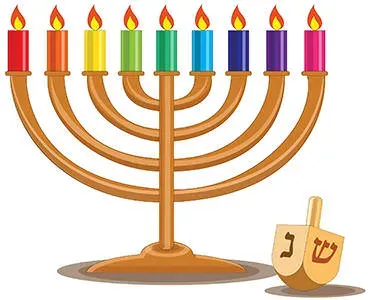 Hanukkah, otherwise known as the Jewish Festival of Lights, is celebrated for 8 days in the Hebrew month of Kislev. It commemorates the rededication of the Second Jewish Temple in Jerusalem. Since the Jewish holidays follow the Lunar calendar, the official start of Hanukkah on 25th of Kislev tends to fall out sometime between the middle of November to the end of December on the Gregorian calendar. In 2014, Hanukkah begins on Tuesday night, December 16th and lasts until Wednesday night of December 24th.
Hanukkah, otherwise known as the Jewish Festival of Lights, is celebrated for 8 days in the Hebrew month of Kislev. It commemorates the rededication of the Second Jewish Temple in Jerusalem. Since the Jewish holidays follow the Lunar calendar, the official start of Hanukkah on 25th of Kislev tends to fall out sometime between the middle of November to the end of December on the Gregorian calendar. In 2014, Hanukkah begins on Tuesday night, December 16th and lasts until Wednesday night of December 24th.
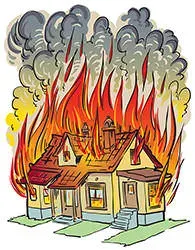 The story of Hanukkah recalls the time Judea (Israel) was ruled by the Greek Empire, around the year 171 BCE. A new king came to power, Antiochus IV, and he made it his mission to make sure all the Jews followed Roman ways and prayed to Roman gods. When he found out that the Jews refused, he burned many of their homes and tens of thousands of Jews were killed or put to slavery. His soldiers took all the treasures out of the Jewish Temple and he erected a large statue of Zeus in the Temple instead.
The story of Hanukkah recalls the time Judea (Israel) was ruled by the Greek Empire, around the year 171 BCE. A new king came to power, Antiochus IV, and he made it his mission to make sure all the Jews followed Roman ways and prayed to Roman gods. When he found out that the Jews refused, he burned many of their homes and tens of thousands of Jews were killed or put to slavery. His soldiers took all the treasures out of the Jewish Temple and he erected a large statue of Zeus in the Temple instead.
 Under the leadership of a former Jewish priest Mattathias the Hasmonean and his son Judah, the Jews formed a rebellion and overpowered the Greek army. They were known as the Maccabees, and when they cleaned out the Temple and wanted to resume the daily rituals and services they realized that only a small vial of untainted olive oil remained to light the menorah, the candelabrum. It would take days to prepare more oil so they decided to light it anyway. Then a miracle happened, and the oil that would have normally lasted for one day actually lasted for 8 days, the amount of time it would take to prepare more oil! That is the reason why Hanukkah is celebrated for 8 days.
Under the leadership of a former Jewish priest Mattathias the Hasmonean and his son Judah, the Jews formed a rebellion and overpowered the Greek army. They were known as the Maccabees, and when they cleaned out the Temple and wanted to resume the daily rituals and services they realized that only a small vial of untainted olive oil remained to light the menorah, the candelabrum. It would take days to prepare more oil so they decided to light it anyway. Then a miracle happened, and the oil that would have normally lasted for one day actually lasted for 8 days, the amount of time it would take to prepare more oil! That is the reason why Hanukkah is celebrated for 8 days.
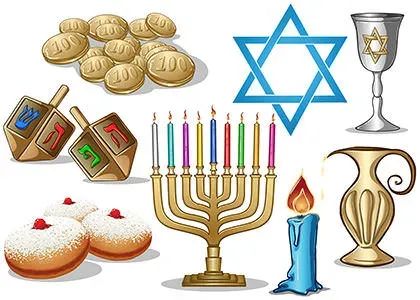 Tradition dictates that every day candles are lit in a special candelabrum called the "Hanukkiya". On the first eve of Hanukkah one candle is lit and every night one more candle is added until all 8 candles are lit on the last night of the holiday. The children customarily play with a dreidel (a spinner in Yiddish), which is a gambling game usually played with marbles, pennies, or pieces of candy, and eat foods fried in oil, such as doughnuts and latkes (fried potato pancakes). They are given presents and shiny chocolate coins, called "gelt" in Yiddish. Some children actually get real coins. Some families even go as far as to give a new gift every single day of Hanukkah. And that's when the holiday starts to resemble Christmas. Or does it? Is the tradition of giving gifts to children rooted in the Bible, or was it made up so the kids can keep up with their Christmas celebrating peers? Where and how does gift-giving on Hanukkah originate?
Tradition dictates that every day candles are lit in a special candelabrum called the "Hanukkiya". On the first eve of Hanukkah one candle is lit and every night one more candle is added until all 8 candles are lit on the last night of the holiday. The children customarily play with a dreidel (a spinner in Yiddish), which is a gambling game usually played with marbles, pennies, or pieces of candy, and eat foods fried in oil, such as doughnuts and latkes (fried potato pancakes). They are given presents and shiny chocolate coins, called "gelt" in Yiddish. Some children actually get real coins. Some families even go as far as to give a new gift every single day of Hanukkah. And that's when the holiday starts to resemble Christmas. Or does it? Is the tradition of giving gifts to children rooted in the Bible, or was it made up so the kids can keep up with their Christmas celebrating peers? Where and how does gift-giving on Hanukkah originate?
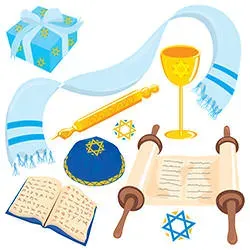 One reason we give gifts on Hanukkah is to remember and renew our dedication to G-d. After the purification and rededication of the Jewish Temple in Judea, Jewish leaders celebrated Hanukkah by bringing gifts such as silver basins, bowls, and ladles to facilitate religious sacrifice in the Temple. Since in modern times sacrifice is replaced with religious study and prayer, gifts are now given as a way to help others worship G-d. Prayer books and other religious items make appropriate gifts.
One reason we give gifts on Hanukkah is to remember and renew our dedication to G-d. After the purification and rededication of the Jewish Temple in Judea, Jewish leaders celebrated Hanukkah by bringing gifts such as silver basins, bowls, and ladles to facilitate religious sacrifice in the Temple. Since in modern times sacrifice is replaced with religious study and prayer, gifts are now given as a way to help others worship G-d. Prayer books and other religious items make appropriate gifts.
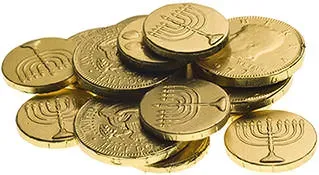 A second reason we give gifts on Hanukkah originated with the idea of "Hanukkah gelt", a Yiddish term that means Hanukkah money. Following the original victory of the Maccabees over the Greek army, the Jewish soldiers collected booty in the form of weapons, armor, horses, and coins (I Maccabees 3:41). These coins were then distributed to soldiers and needy families, including widows and orphans. Furthermore, after gaining their independence from the Greek, the Israelites were finally able to mint their own coins. Thus, coins became a true symbol of Hanukkah.
A second reason we give gifts on Hanukkah originated with the idea of "Hanukkah gelt", a Yiddish term that means Hanukkah money. Following the original victory of the Maccabees over the Greek army, the Jewish soldiers collected booty in the form of weapons, armor, horses, and coins (I Maccabees 3:41). These coins were then distributed to soldiers and needy families, including widows and orphans. Furthermore, after gaining their independence from the Greek, the Israelites were finally able to mint their own coins. Thus, coins became a true symbol of Hanukkah.
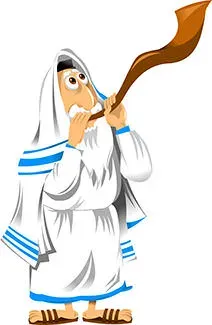 And finally, a third reason we give gifts on Hanukkah is because the Jews simply borrowed that tradition from their Greek neighbors. At the time of the Maccabees, it was common for the Greeks to engage in gift giving. Some historians interpret Hanukkah as a holiday that celebrates the interaction between Judaism and the dominant culture of that time. In his book, "The Jewish Way: Living the Holidays", Irvin Greenberg explains that "Hanukkah is the paradigm of the relationship between acculturation and assimilation where each generation has interpreted Hanukkah in its own image, speaking to its own needs".
And finally, a third reason we give gifts on Hanukkah is because the Jews simply borrowed that tradition from their Greek neighbors. At the time of the Maccabees, it was common for the Greeks to engage in gift giving. Some historians interpret Hanukkah as a holiday that celebrates the interaction between Judaism and the dominant culture of that time. In his book, "The Jewish Way: Living the Holidays", Irvin Greenberg explains that "Hanukkah is the paradigm of the relationship between acculturation and assimilation where each generation has interpreted Hanukkah in its own image, speaking to its own needs".
 The trend of giving Hanukkah gifts instead of just Hanukkah gelt (money) in America really took off in the 1950's. At that time Jewish child psychologists and rabbis decided that it was a good way to make post Holocaust kids be proud of being Jewish instead of sad and envious of their American Christmas celebrating peers. The true meaning of Hanukkah is to remember the freedom the Maccabees fought for to live independently and to be free to practice their religion and customs. Celebrating Hanukkah can therefore be highlighted through gift-giving as a way to reach out to the children and bring them closer to their Jewish roots while in the context of living in an American society.
The trend of giving Hanukkah gifts instead of just Hanukkah gelt (money) in America really took off in the 1950's. At that time Jewish child psychologists and rabbis decided that it was a good way to make post Holocaust kids be proud of being Jewish instead of sad and envious of their American Christmas celebrating peers. The true meaning of Hanukkah is to remember the freedom the Maccabees fought for to live independently and to be free to practice their religion and customs. Celebrating Hanukkah can therefore be highlighted through gift-giving as a way to reach out to the children and bring them closer to their Jewish roots while in the context of living in an American society.